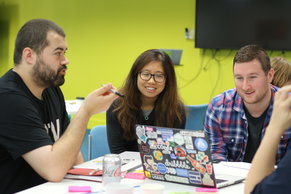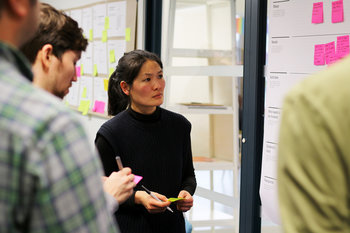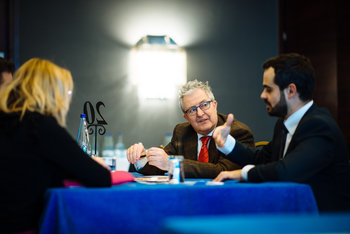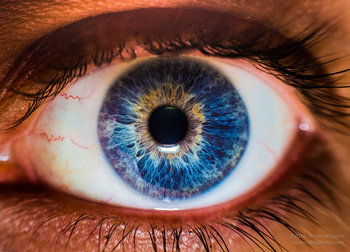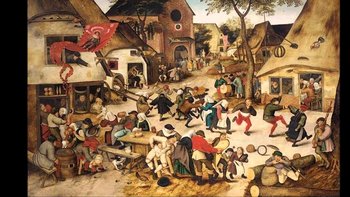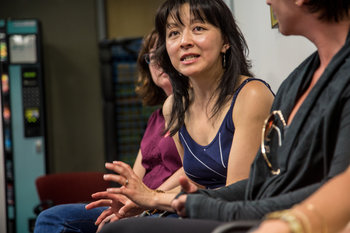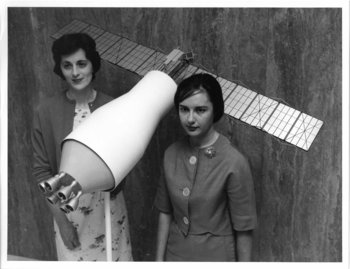
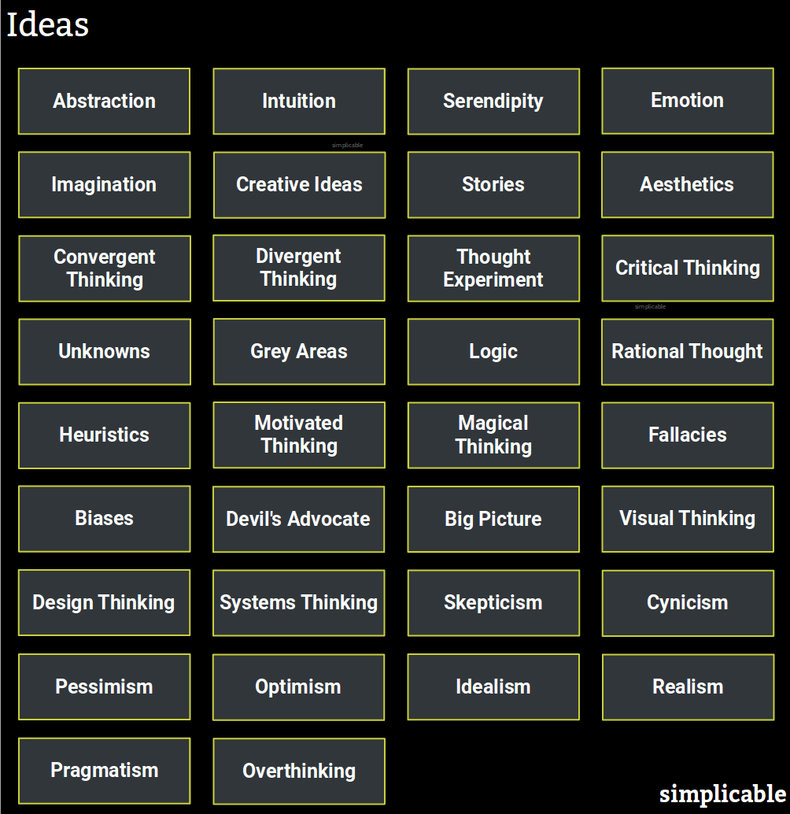
Abstraction
An abstraction is an idea that has no physical form. The ability to think in abstraction is one of the remarkable features of human cognitive abilities. Although abstractions don't physically exist this doesn't make them any less real. For example, freedom is an abstraction that exists as an element of the human experience.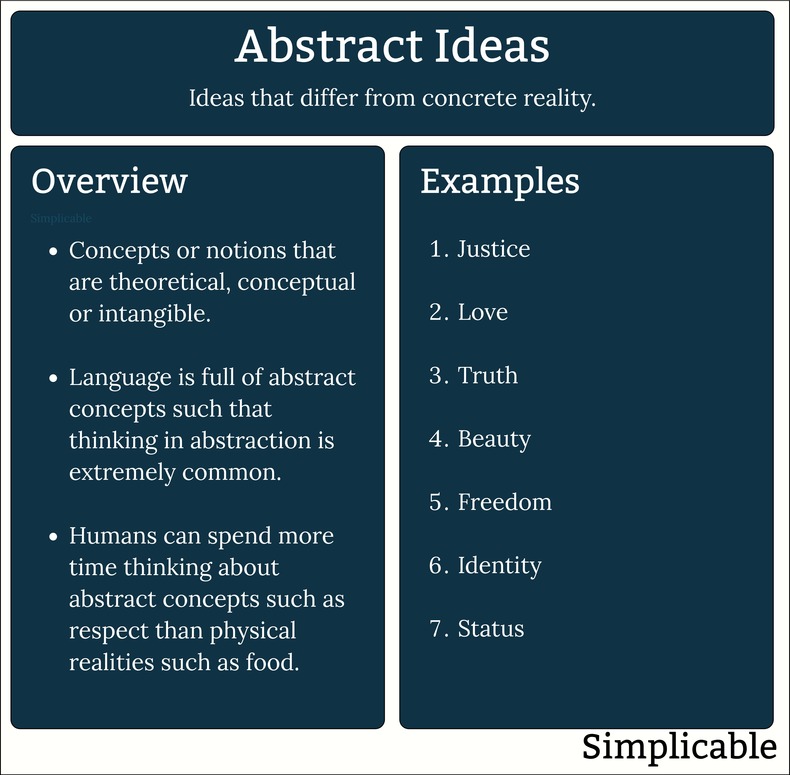
Intuition
Intuition is a feeling or idea that appears to originate with subconscious processes such that an individual can't explain how it was formulated. For example, an individual who intuitively feels that there is something wrong with a particular product such that they decide not to buy it.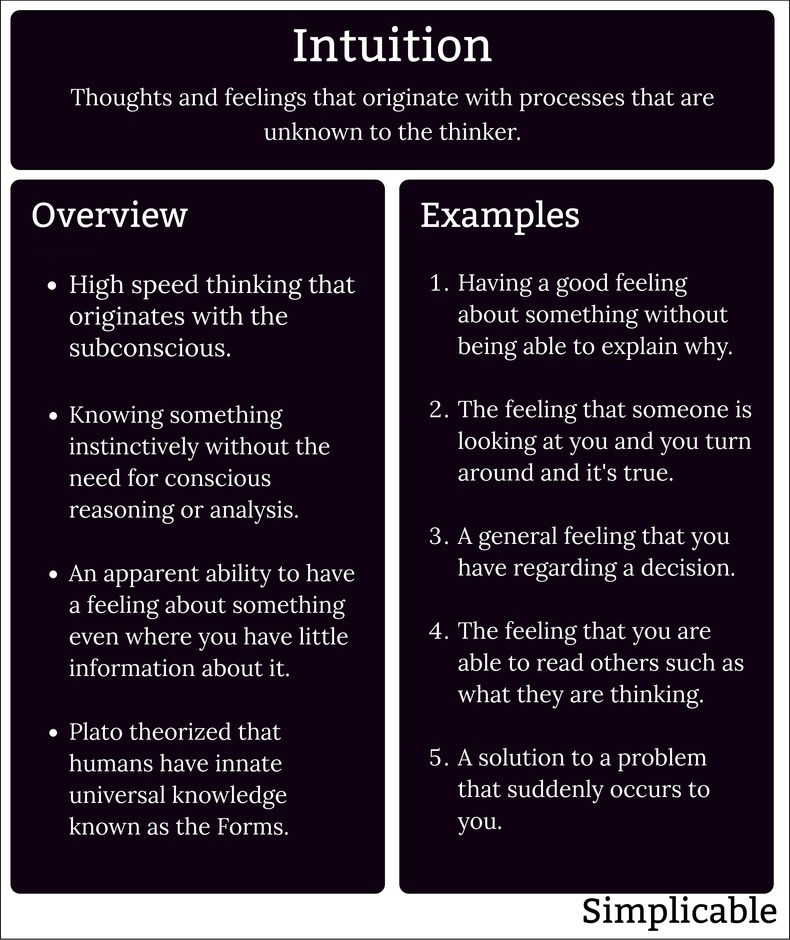
Serendipity
Serendipity is a sudden and profound idea that comes to a person, usually after a long period of thinking about a problem without results. This can be described as inspiration and may occur due to processes in the subconscious. For example, a startup founder who has struggled with a failing business model for years who suddenly realizes a small change will produce dramatically improved results.
Emotion
An emotion is a state of mind that colors all ideas. For example, an individual in a relaxed mood who views minor challenges with a sense of humor as opposed to an individual in a stressed mood who views the same challenges as insurmountable.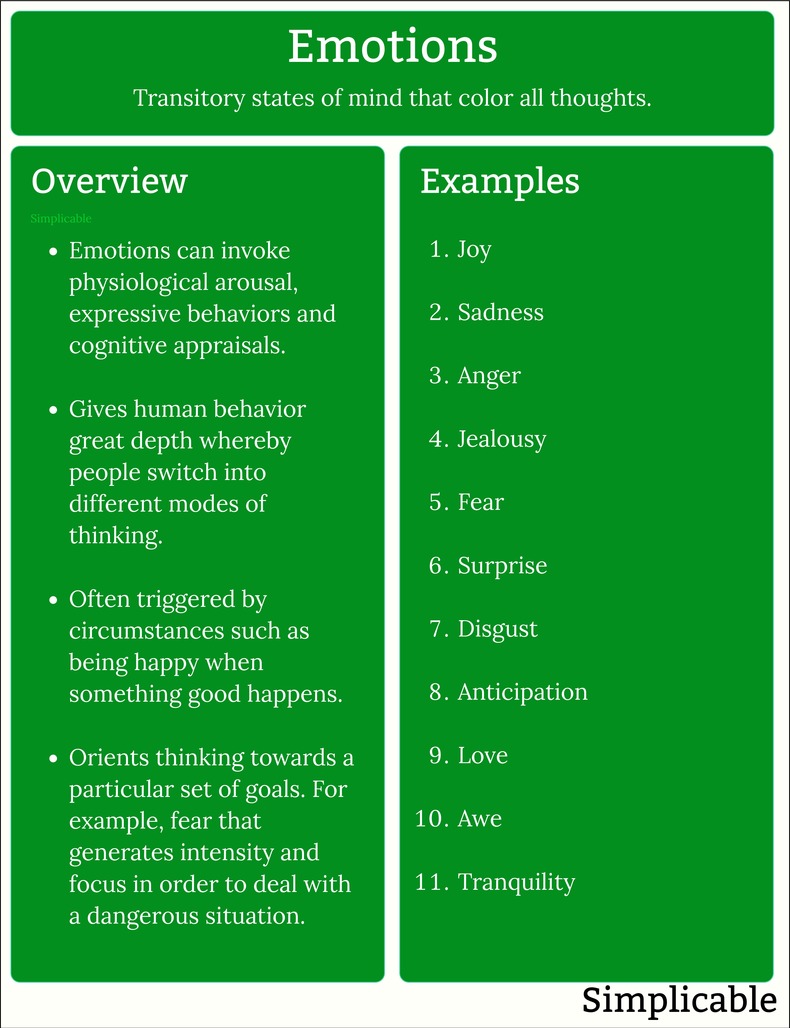
Imagination
The ability to contemplate and explore ideas beyond the realities of the world.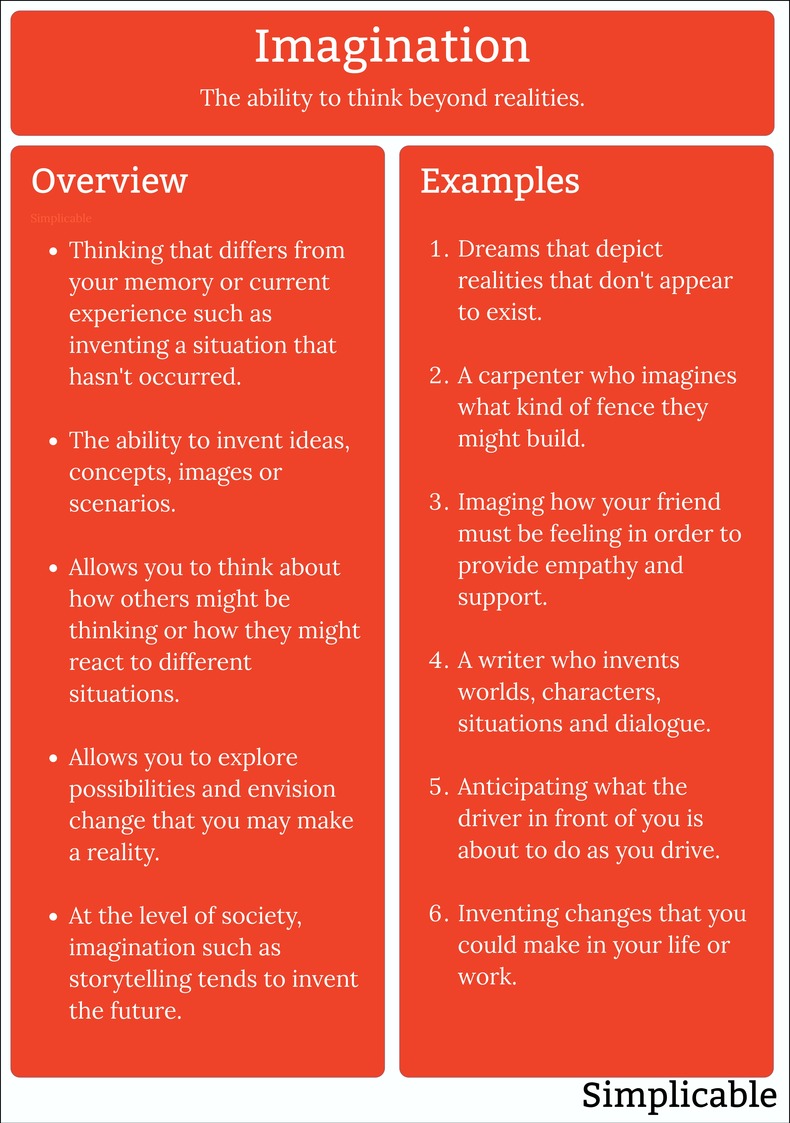
Creative Ideas
Creativity is the ability to develop valuable ideas that are non-obvious such as an artist who develops a new perspective or technique that starts an art movement.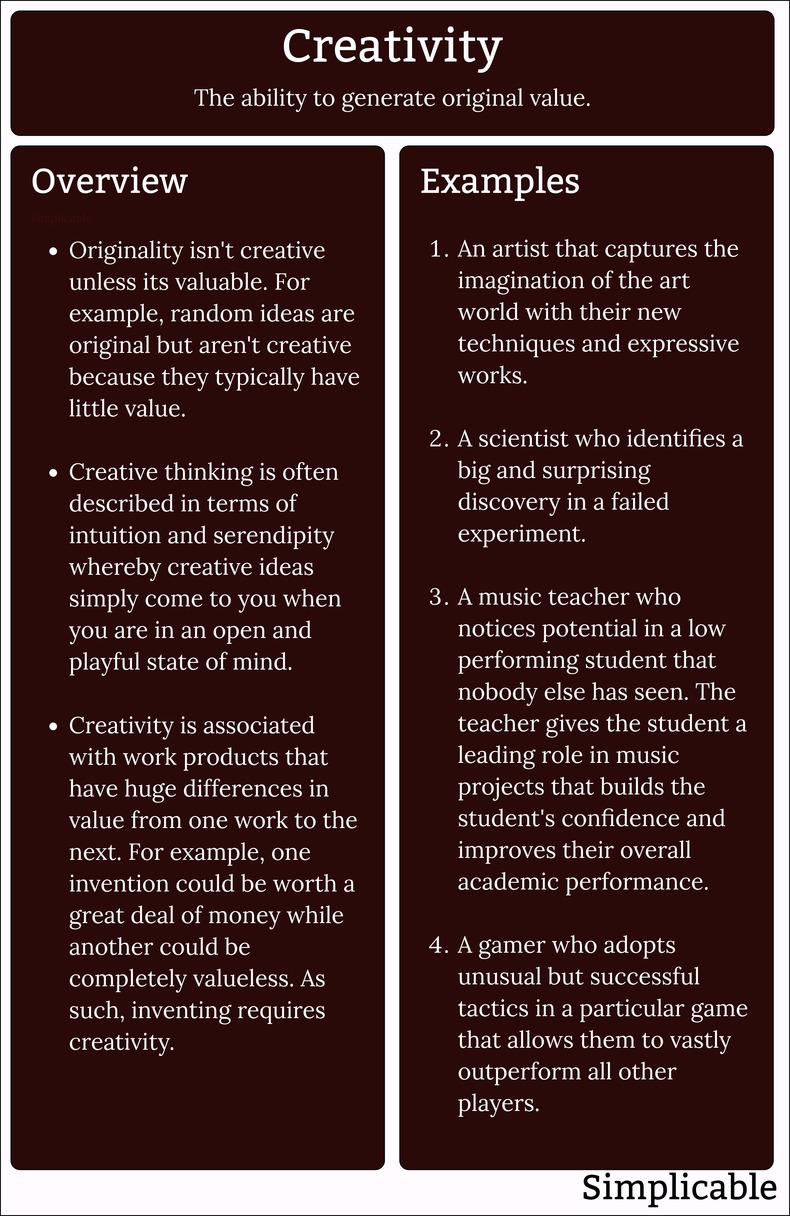
Stories
Stories are ideas that deliver meaning and emotion in a interesting way. These can be based on reality, fiction or both.Aesthetics
The idea that something is visually appealing or unappealing. This can include abstract concepts such as a style of architecture that is instantly recognizable.Convergent Thinking
Convergent thinking is the process of using established knowledge to determine an established answer to a problem. For example, a student who knows the rules of English grammar such as the conventions related to countable and uncountable nouns.Divergent Thinking
Divergent thinking is the ability to build your own path to solve problems with no established answer or solution. For example, the ability to write a work of English fiction that others will regard as priceless literature.Thought Experiment
A thought experiment is an analogy that helps to simplify a problem. For example:If the universe is finite it has an edge. If you could walk to this place and throw a spear towards the edge, what would happen?
If the spear goes somewhere then there is space beyond the edge. If the spear bounces back then there is something beyond the edge. This is based on the assumption that the finite universe has an edge as opposed to folding back into itself.Critical Thinking
Critical thinking is the process of evaluating things. This isn't necessarily negative and can lead to a positive opinion such as a film reviewer who feels a film was brilliant.Unknowns
People often use ideas to fill in unknowns. For example, if you hear a large sound in the forest at night you might make an educated guess at what is making the sound.Grey Areas
Grey areas are exceptions, degrees of truth and probabilities that add great complexity to life. For example, the opinion that a coworker is brilliantly creative but ungrounded in reality. This can be contrasted with unambiguous information such as a score on an IQ test. Grey areas may be more accurate and insightful but unambiguous information is easier to use.Logic
Ideas that are supported by facts and a system of logic. Traditional logic can't handle grey areas due to a limitation known as excluded middle. Logic can also be difficult to apply to human factors such that it is sometimes viewed as cold.Rational Thought
Rational thought describes ideas that people view as reasonable in the context of a society and culture. For example, the opinion that it is unreasonable for an employer to ask an employee to perform non-critical work on an important holiday.Heuristics
Heuristics are mental shortcuts such as a rule of thumb. For example, a student who develops the theory that a professor is usually in a bad mood on Mondays.Motivated Thinking
Ideas that are shaped by what you want to be true. It is common to seek out evidence to support your motivations as opposed to objectively evaluating all evidence.Magical Thinking
Ideas that fail to match with reality. For example, a company executive who believes that a magical technology will improve revenue and reduce cost without being able to explain why.Fallacies
Fallacies are ideas that are based on logical errors or unsupported assumptions such as the base rate fallacy, a common type of mathematical error illustrated in the example below.One student stole a teacher's wallet from the teacher's room. A DNA test is performed on all 5000 students at the school to find the culprit. The test has a 5% false positive rate. Sarah matches the DNA found at the scene. What is the probability that Sarah is innocent?
The most common answer to the problem above is that their is a 5% chance that Sarah is innocent. This is incorrect. The 5% false positive rate across 5000 students would produce 250 false positives with only one guilty individual. As such, there is a 99.6% chance that Sarah is innocent. Biases
Biases are repeated patterns of thinking that produce fallacies such as survivorship bias whereby people only consider the winners in a situation. For example:Steve Jobs often wore jeans and co-founded one of the world's largest companies. Therefore, causal fashions are an indicator of entrepreneurial ability.
The argument above fails to consider all the company founders who wore jeans and had their companies fail. If 900,000 causal dressing founders had their startups fail, the theory above starts to look questionable.Devil's Advocate
Devil's advocate is a communicated idea that is designed to challenge others and stimulate interesting conversation. The term devil's advocate suggests that you don't hold the idea as true but rather believe it is useful to a conversation. For example, suggesting that the global capitalist system is perfectly fair simply to spark lively conversation.Big Picture
Ideas that relate to the broad context as opposed to details. For example, a high school student who feels that the long term value of their education is found in learning to think, research, compose, socialize and grasp foundational concepts as opposed to memorizing facts and spitting them back out on a test paper.Visual Thinking
Ideas that are discovered, communicated or remembered as pictures such as an architect who can draw a concept for a building better than they can explain it with words.Design Thinking
Design thinking is the process of solving problems with design such as a student who helps to solve an environmental problem by designing a new high yield way to grow corn with less impact on ecosystems.Systems Thinking
Ideas that incorporate the extreme complexities involved in systems such as societies, cultures, economies and ecosystems. For example, a partial solution to an environmental problem that reduces political polarization around the issue such that it has a chance to be implemented.Skepticism
Skepticism is a tendency to doubt that knowledge is valid due to a very high standard of truth. At its extreme, some skeptics believe that they only thing that we know for sure is that we exist and everything else is unknown because we don't know if what we detect with out senses is simulated or real.Cynicism
Cynicism is thinking that is colored by distrust of people such as the view that people are selfish, petty and dishonest. For example, a hiring manager who assumes by default that a job candidate probably falsified half of the things on their resume.Pessimism
Pessimism is a tendency to overestimate risk and focus on negatives. For example, an aunt who thinks her nephew's new business has zero chance of being successful.Optimism
Optimism is a tendency to underestimate risk and focus on positives. For example, a nephew who thinks there is zero chance his new business will fail.Idealism
Idealism is the view that the world is the product of ideas as opposed to the other way around such as the theory that fiction creates reality.Realism
Realism is the view that the world doesn't care about our ideas and has its own reality that can be measured and understood. For example, the idea that behavior is completely explained by the biology of an organism.Pragmatism
Pragmatism views things as true if they are true for all practical purposes such as the argument that if people commonly believe music has value then it has value. Pragmatists are uninterested in heavy universal theories when a simple explanation based on obvious realities will suffice.Overthinking
Overthinking is the process of making a problem or decision more complex than required. For example, researching the specifications of dozens of products for weeks and then finally buying the product you intuitively liked from the start.| Overview: Ideas | ||
Type | ||
Definition | An understanding, opinion, strategy, design or concept that is formed in an individual's mind. | |
Related Concepts | ||












